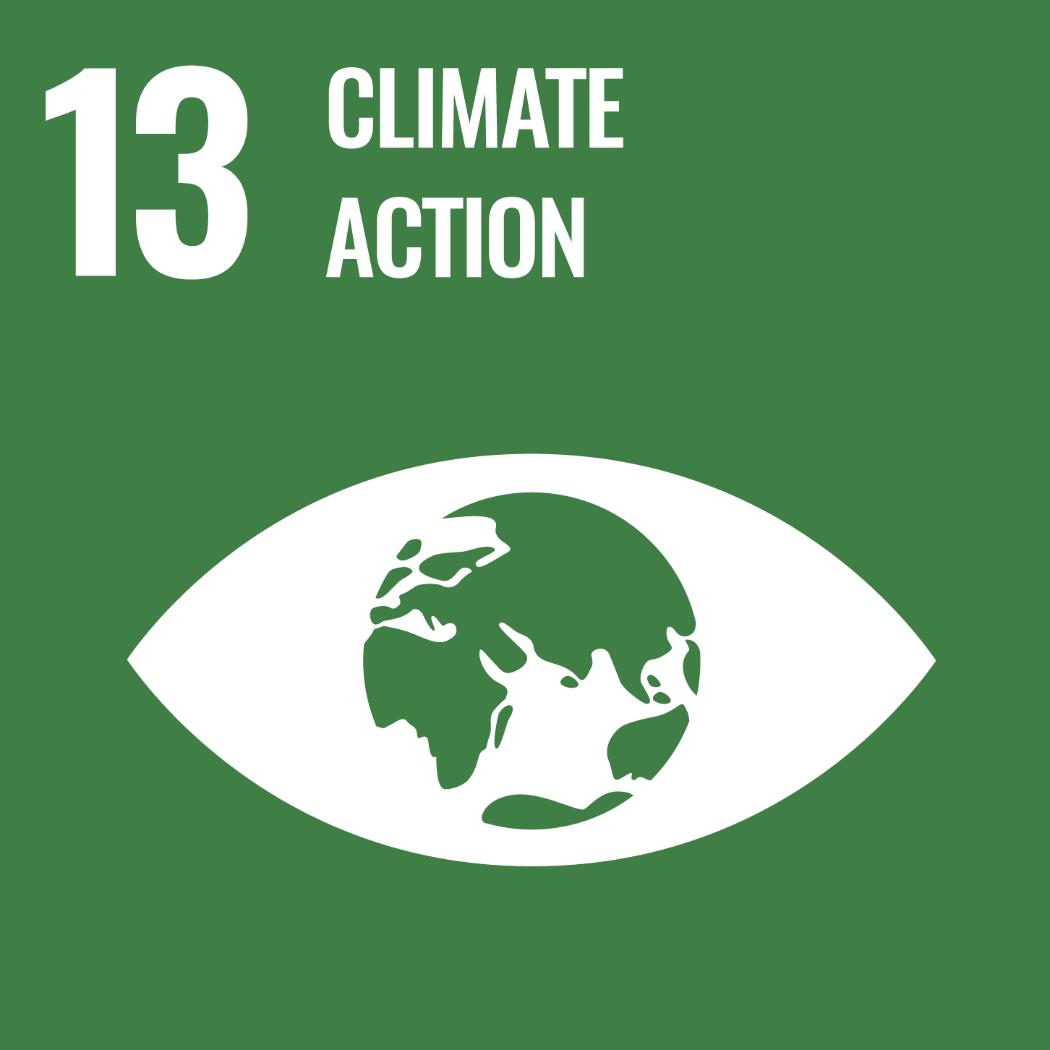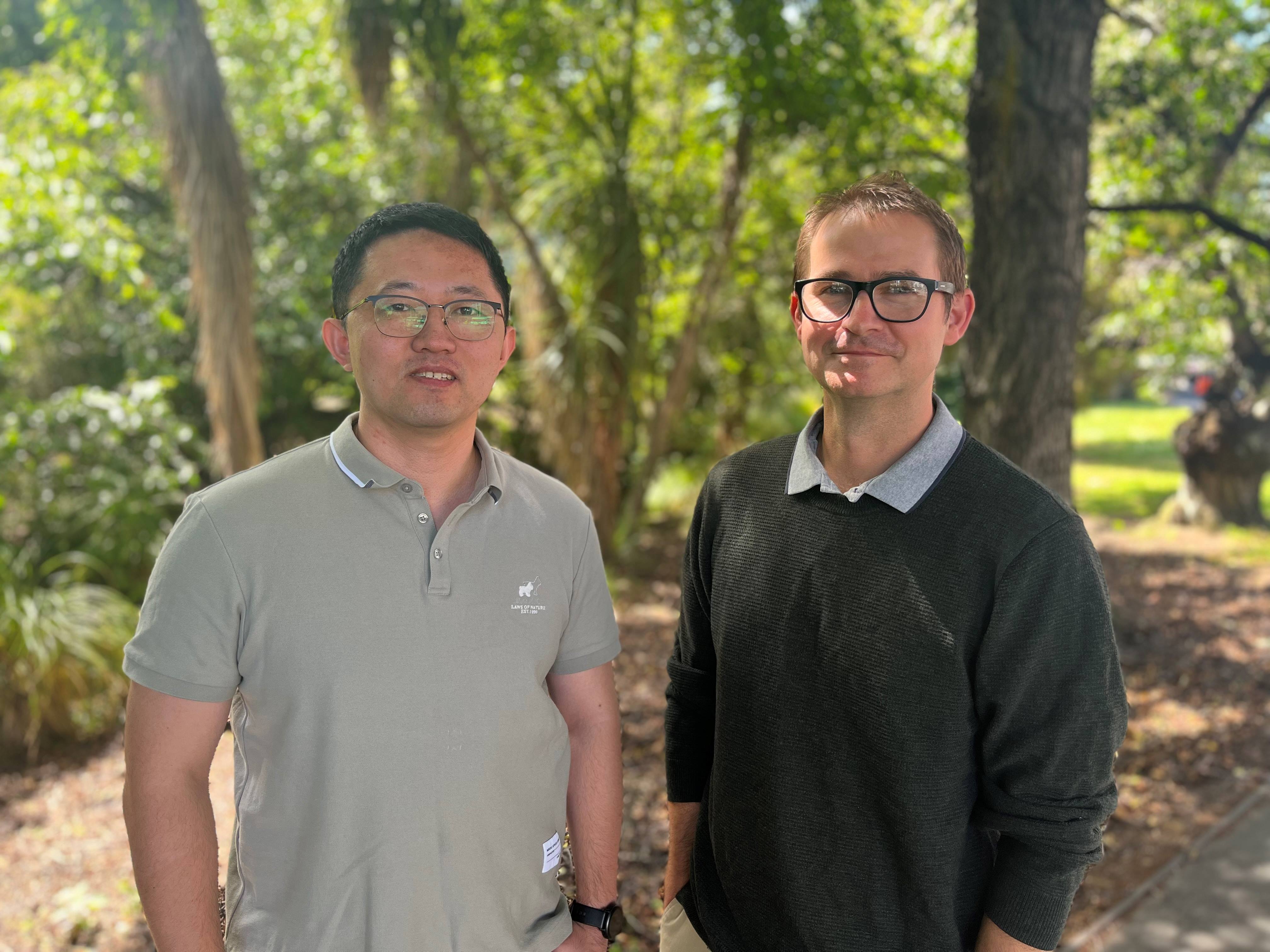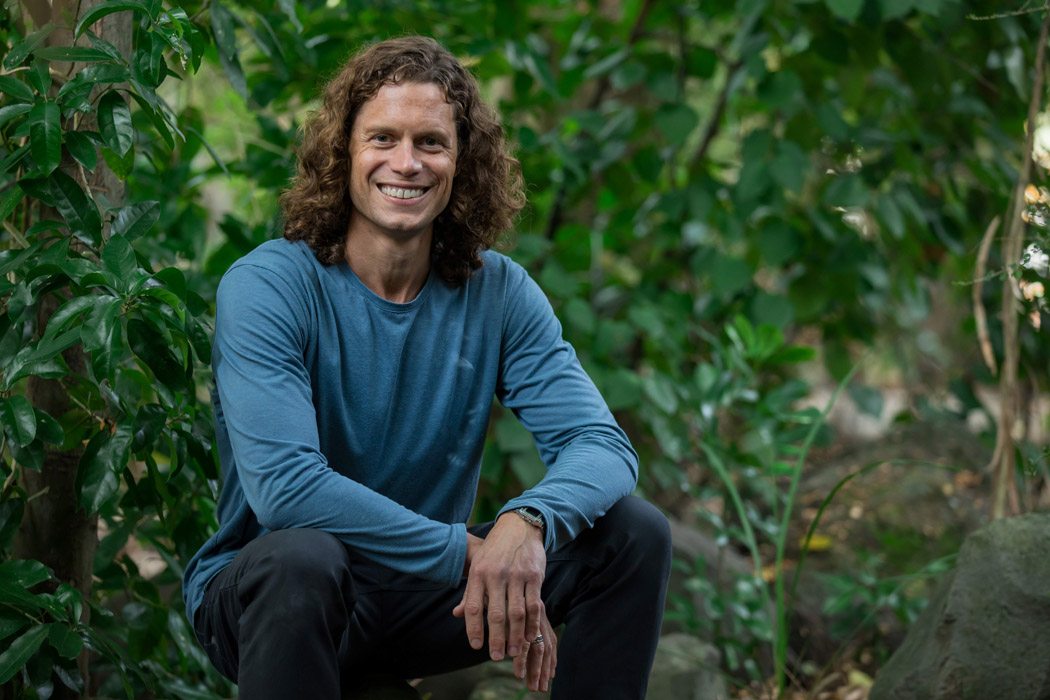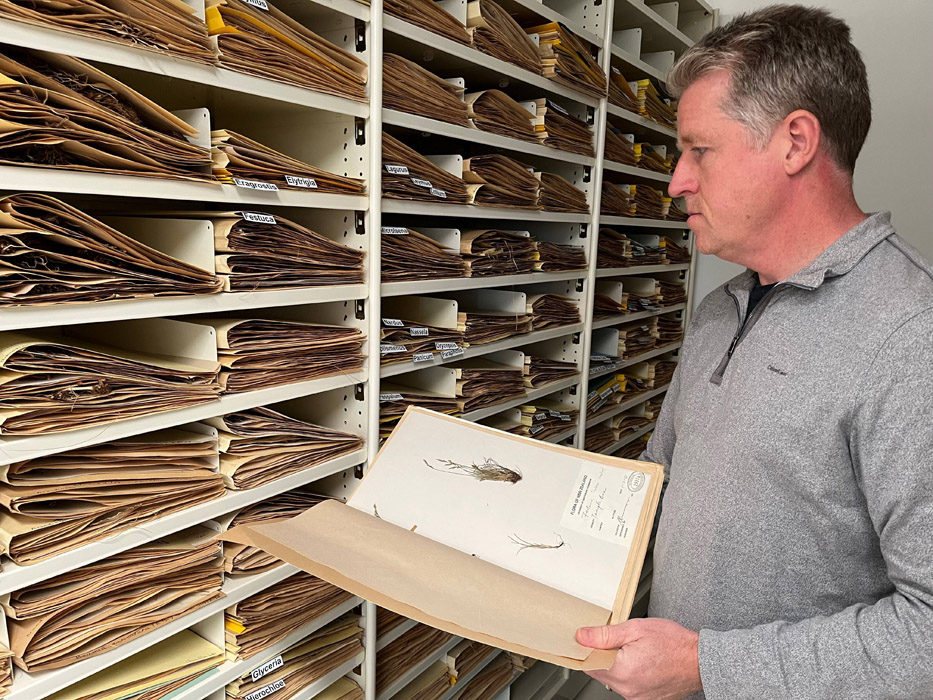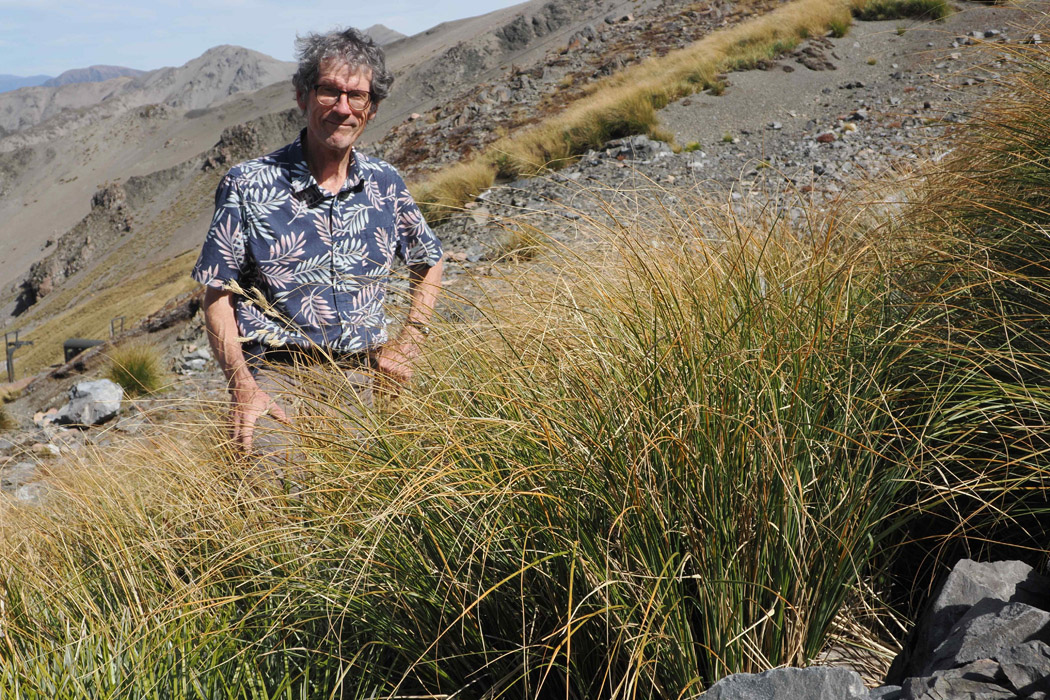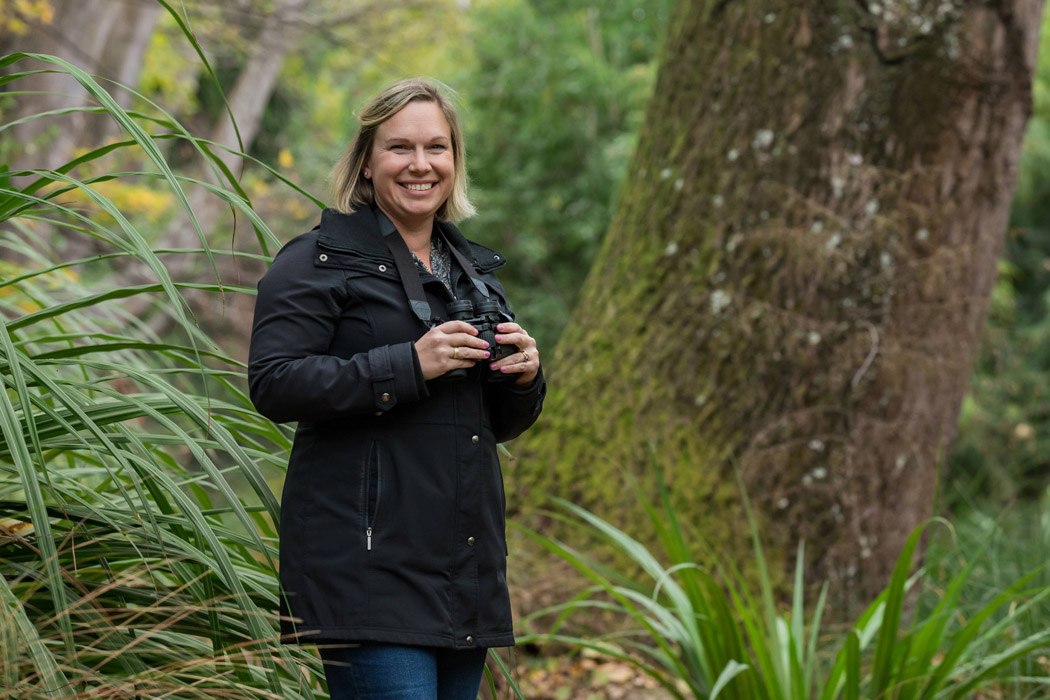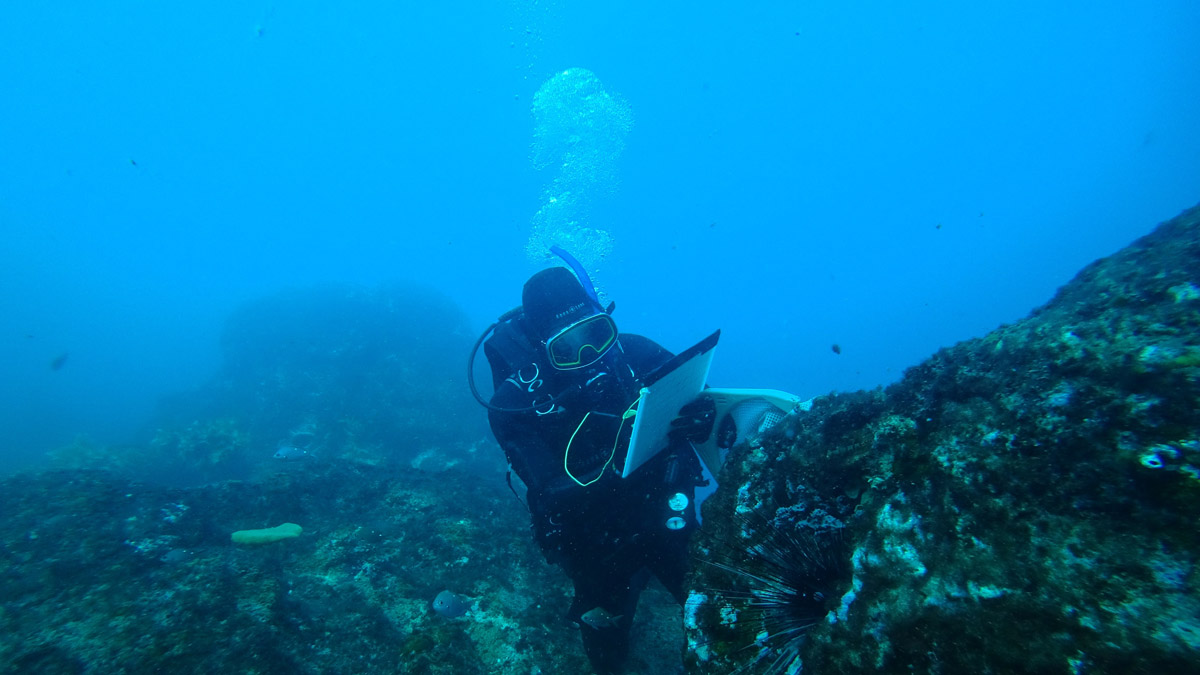Her UC research team based in UC’s School of Biological Sciences has two main areas of research:
- Why do some species have males and females that look really different from each other while other species don’t?
- Understanding why populations respond differently to environmental factors.
“While these topics might seem completely unrelated, they’re actually closely tied. The factors driving both male-female differences and variation between populations will impact a species’ ability to respond to new threats, such as climate change or habitat loss,” Dr Flanagan says.
“The interaction between the kororā and pipefish is actually one of the unique aspects of our work.”
Unlike other birds in New Zealand, kororā in the Banks Peninsula have a large population, with almost a thousand breeding pairs in Pōhatu (Flea Bay) alone. But Dr Flanagan says the population is declining, despite increasing conservation efforts.
The first step of the project is setting up a focus group on marine health and sustainability in the Banks Peninsula, looking particularly at kororā on Pōhatu.
The researchers are drawing on a range of sources, including mātauranga Māori, in their work.
“The information we gather will help us understand what factors are most likely to affect the success of the population, and to ultimately be able to help the kororā thrive despite the changing climate. Once these major threats have been identified, we aim to establish a long-term monitoring project that could be led by tangata whenua.”
The research team has received financial support from a UC Vision Mātauranga grant and will be hiring a summer student funded by the Brian Mason Trust grant to help collect, in collaboration with Pōhatu Penguins.
Dr Flanagan’s research team includes her PhD student, Lucy Howell, and collaborators, Associate Professor Michelle LaRue, Dr John Pirker, and Dr Mads Thomsen, in addition to the partners at Ōnuku Rūnanga. The research has also received funding from the UC’s Faculty of Science New Ideas Seed Grant, UC’s Accelerator Scholarship Programme, and the Brian Mason Scientific & Technical Trust.


